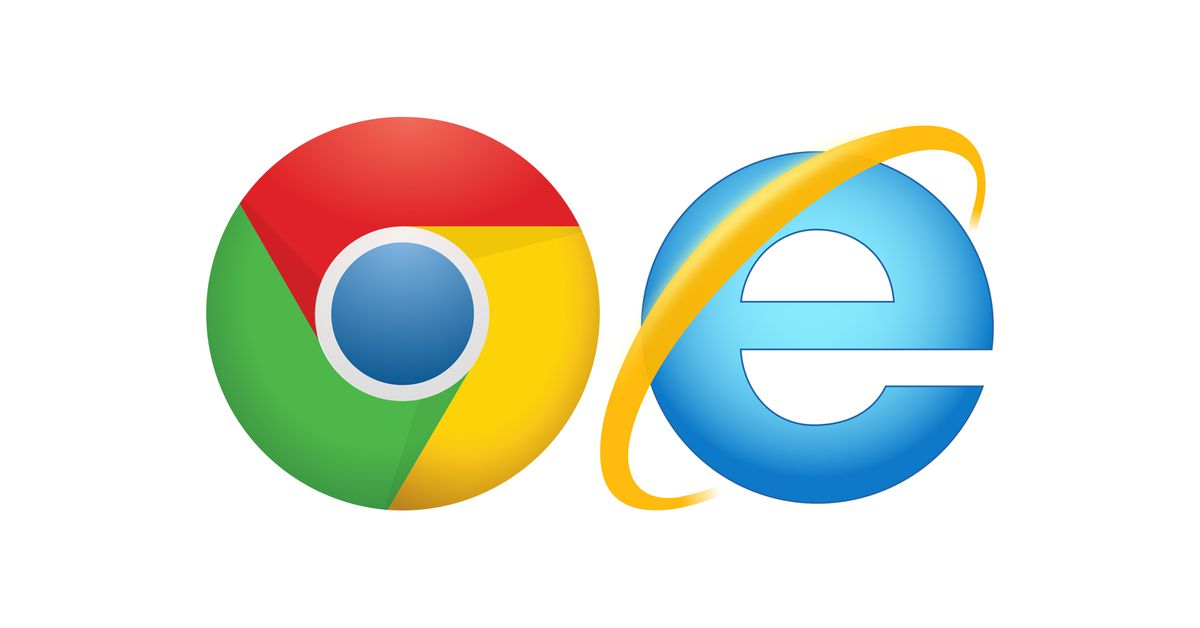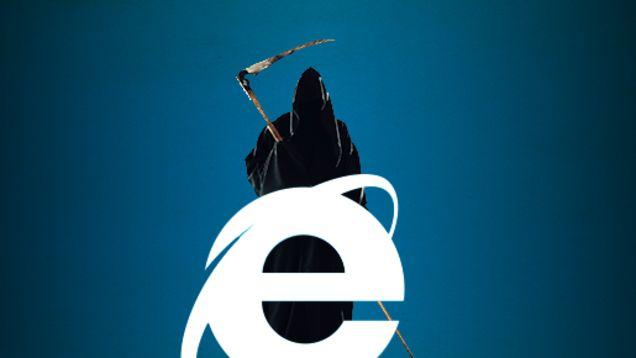
Good one Google.
New to the site? Create an account →
 tcr!
· Jan 5, 2018 at 12:19 pm
tcr!
· Jan 5, 2018 at 12:19 pm

Chrome is now the most popular browser across all devices, thanks to Android’s popularity and the rise of Chrome on Windows PCs and Mac computers. As Google continues to dominate our access to the web, information through its search engine, and services like Gmail or YouTube, Chrome is a powerful entry point in the company’s vast toolbox. While Google championed web standards that worked across many different browsers back in the early days of Chrome, more recently its own services often ignore standards and force people to use Chrome.
Chrome, in other words, is being used in the same way that Internet Explorer 6 was back in the day — with web developers primarily optimizing for Chrome and tweaking for rivals later. To understand how we even got to this stage, here’s a little (a lot) of browser history. If you want to know why saying “Chrome is the new Internet Explorer 6” is so damning, you have to know why IE6 was a damnable problem in the early ‘00s.
It’s important to note that both Google and web developers are responsible for this…but Google shouldn’t only be building its sites for its browser. At all.
I’ve never used Chrome as my default browser on any device. Google’s background updates have always creeped me out.
 tcr!
· Sep 28, 2017 at 12:27 pm
tcr!
· Sep 28, 2017 at 12:27 pm

Google anonymizes most referring search result links these days but every now and then one will slip through.
Like this query for “Gay Indiana Jones” from a visitor in Brazil.
Sadly for him or her my page, Anti-Gay Marriage and Indiana Jones, had nothing to do with a homoerotic Dr. Jones.
 tcr!
· Jun 3, 2017 at 8:16 am
tcr!
· Jun 3, 2017 at 8:16 am

“Trump and the Republicans are doing so many different things on parallel tracks, the news media and activists can’t follow it all,” said Trump adviser and former House speaker Newt Gingrich. “This is by design.”
…
The requirements were modeled after a law passed decades ago by Congress that prohibited telephone companies from collecting customers’ calling histories and selling the information to third parties. “There has been an expectation from the beginning of the telecommunications era that your privacy is not up for sale,” said Sen. Edward J. Markey, (D-Mass.) who fought to preserve the rules.
…
By January, trade groups for tech companies such as Facebook and Google had joined the fight to undo the privacy rules, according to records and interviews. Those companies are regulated by a different government body, the Federal Trade Commission, but they worried that Congress might someday find a way to expand the reach of the rules so that they apply to all technology companies.
Trade groups for large advertisers also got involved in the effort to repeal the law, as did the U.S. Chamber of Commerce.
Consumer and civil rights groups were quickly outnumbered by their opponents, by a ratio of at least 50 to 1, according to Hill staff and lobbyists.
It’s a long and in-depth but well worth reading. Afterward I felt like Trump and friends were/are engaged in a systematic war for the corporations.
 tcr!
· Apr 19, 2017 at 8:19 am
tcr!
· Apr 19, 2017 at 8:19 am

The latest Tweets from Riker Googling (@RikerGoogling). It’s okay, I’m in incognito mode.
If you enjoy Star Trek TNG, what Will Riker googles will be of interest.
 tcr!
· Mar 8, 2017 at 12:41 pm
tcr!
· Mar 8, 2017 at 12:41 pm

A little under five years ago, I got angry about a piece of fake information, and I decided to do something about it. I was reading a recipe in the New York Times, and the recipe told me, as many, many recipes had told me before, that it would take about 10 minutes of cooking to caramelize onions.
I knew from personal experience that this was a lie. Recipes always said it took 5 or 10 minutes to caramelize onions, and when you followed the recipes, you either got slightly cooked onions or you ended up 40 minutes behind schedule. So I caramelized some onions and recorded how long it really took—28 minutes if you cooked them as hot as possible and constantly stirred them, 45 minutes if you were sane about it—and I published those results on Slate, along with a denunciation of the false five-to-10 minute standard.
 tcr!
· Feb 14, 2017 at 12:59 pm
tcr!
· Feb 14, 2017 at 12:59 pm
The debate over whether to use dashes or underscores to represent spaces in URLs is rather heated in the web development community, but not quite as extremely so as that of whether to use tabs or spaces when indenting code. So, what is better to substitute for spaces in URLs, dashes or underscores?
The simple answer is that, never mind what Google prefers, underscores are the right way to go. Why?
I’ve always refused the dash in URLs. Always will.
 tcr!
· May 4, 2016 at 9:34 am
tcr!
· May 4, 2016 at 9:34 am

Microsoft’s Internet Explorer has long been the most used browser on the internet. But its iron grip began slipping ever since Google launched Chrome in 2008. In 2012, one usage tracker declared Chrome the new champion, but some others still had IE in the lead. Now, all the holdouts are in agreement—Chrome is king.
On the desktop. On mobile, Internet Explorer is irrelevant.
Mitchell · Dec 1, 2018 at 3:33 pm
Lol
Reply
Post
leebobabaruba · Dec 3, 2018 at 6:44 pm
Would they make up their mind?
Reply
Post